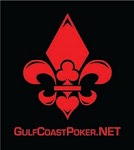The future of online poker as we know it in the United States is all but gone. On April 15th, yes on the day most Americans pay taxes, the Department of Justice (DOJ) in one fell swoop seizes the domain names of the top three online poker site operators that operate in the United States. It all came crashing down without notice. Site bank accounts were seized & funds were deemed inaccessible, thus player balances were immediately frozen & all cash out transactions were suspended. Virtually millions of dollars all of a sudden did not exist, or I am sure it felt that way.
It has been currently reported by subject poker that the world’s second largest poker site Full Tilt Poker is facing an unfathomable $60 million dollar shortfall. What really was the underlying cause of this shortfall?
Is this a next version of a Wall Street Ponzi scheme? Is Ray Bitar no better than Bernie Madoff? So before I get bombarded with accusations that I don’t know what I am talking about, remember this is only my opinion. Lets first look at the definition of a Ponzi Scheme as provided by Wikipedia:
“A Ponzi scheme is a fraudulent investment operation that pays returns to separate investors, not from any actual profit earned by the organization, but from their own money or money paid by subsequent investors. The Ponzi scheme usually entices new investors by offering returns other investments cannot guarantee, in the form of short-term returns that are either abnormally high or unusually consistent. The perpetuation of the returns that a Ponzi scheme advertises and pays requires an ever-increasing flow of money from investors to keep the scheme going.” - Wikipedia
Now I know that this opinion or argument can go one way or another, but let’s take a closer look for discussion purposes. First of all poker is an investment, but not perceived as a fraudulent one by its investors. Full Tilt Poker (FTP) took deposits that were processed by either banks or some sort of payment processing service & would subsequently credit player accounts for these deposits. Now the rake charged during every cash game hand dealt & juice from every tournament buy in would be their primary source of income.
Was there a separate financial account holding player balances that was not used for daily operations or ordinary business expenses? It is still unknown at the moment. Players would then take these balances & use them as buy ins for tournaments or cash games thus expecting a rate of return based upon skill in the long term or the inherent short term luck fest. Either way at some point in time they were looking to cash out & when those checks that were written but not honored that should have immediately raised a red flag to cause some concern that something just was not right. In the end it seems that as deposits flowing in were used as a mean to pay out player cash out requests & that the players’ balances were used as means to finance the day to day operations if not worse, theft.
So many questions have been asked with little to no information provided in response. That is what happens when lawyers are part of the equation. They have a license to interpret & invoice. We have now turned the reigns over to Capitol Hill yet once again to intervene with decisions that any adult of legal age should be competent enough to decide whether an activity creates moral hazard. Don’t tell us how to spend our money that we make after taxes have been paid. In this country it seems as we are protected more from ourselves than from others & it should obviously be the other way around. It’s sad but if change is not inevitable, our demise will.
Monday, July 4, 2011
Subscribe to:
Posts (Atom)


